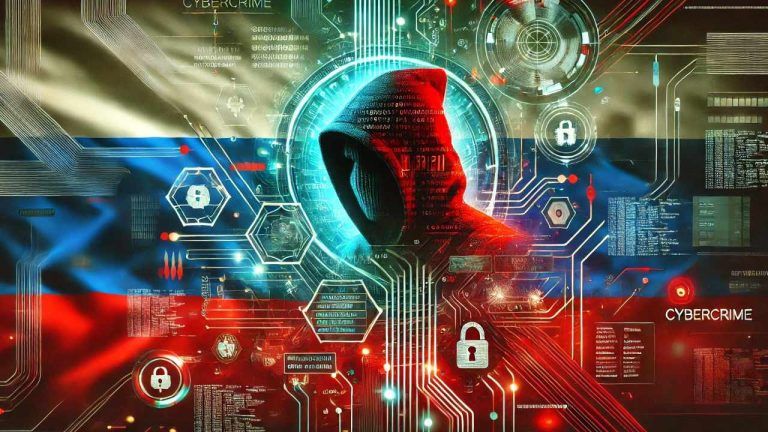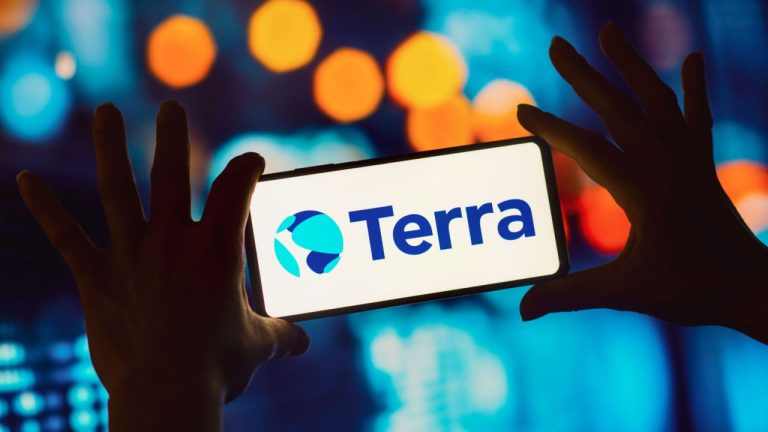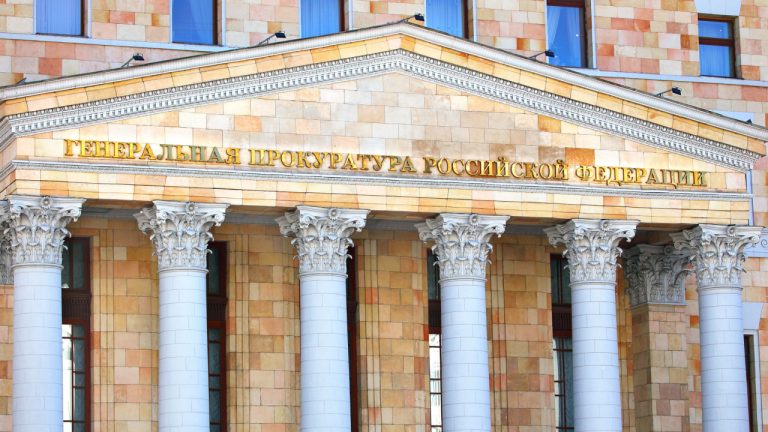 Russian Interior Minister Vladimir Kolokoltsev has revealed that cybercrime damage in Russia has surpassed $1.25 billion so far this year, with both individuals and organizations, including government bodies, as frequent targets. He highlighted that cybercrime now represents 40% of all crimes in the country, rising to 60% in serious cases. Cybercrime Costs Russia Over $1.25 […]
Russian Interior Minister Vladimir Kolokoltsev has revealed that cybercrime damage in Russia has surpassed $1.25 billion so far this year, with both individuals and organizations, including government bodies, as frequent targets. He highlighted that cybercrime now represents 40% of all crimes in the country, rising to 60% in serious cases. Cybercrime Costs Russia Over $1.25 […]

It comes a day after a UK government bill aimed to clarify that crypto was “personal property” under property laws.
A United Kingdom High Court has ruled that stablecoin Tether is property — the first-ever ruling under English law on the treatment and status of cryptocurrency after a full trial.
The legal status of Tether (USDT) was a preliminary issue in a case brought by a fraud victim whose stolen crypto — including Tether — was offloaded through various crypto exchanges after being put through crypto mixers.
“USDT attract property rights under English law,” High Court of Justice Deputy Judge Richard Farnhill said in the Sept. 12 ruling.

Salame proposes to satisfy the debtors by transferring a residence he owns to FTX Digital Markets Ltd.
The former co-chief executive of FTX Digital Markets, Ryan Salame, has agreed to transfer his multimillion-dollar property in the Bahamas as part of his plea agreement in a criminal case.
According to a motion from FTX Trading Ltd and affiliated debtors filed with the United States Bankruptcy Court for the District of Delaware on May 1, Ryan Salame has agreed to give up a $5.9 million house he owns in the Bahamas.
Salame pleaded guilty to criminal charges in September 2023 and his plea agreement required him to pay $5.6 million in restitution to the debtors.

Around 5 billion people are online and digitally-bound assets should get the same treatment as any other type of property, says Sandbox co-founder Sebastien Borget.
Digital assets such as cryptocurrencies and nonfungible tokens (NFTs) should be recognized as legitimate property, especially as more of the world’s population goes digital, argues the co-founder of The Sandbox.
Speaking to Cointelegraph’s editor-in-chief, Kristina Lucrezia Cornèr, during Blockchain Week Rome last week, Sebastien Borget said thso-called “digital natives” — those who grew up with and subsequently have an increased confidence with digital devices — are growing.
“More than half of the world's population is now a digital native,” said Borget. The United Nations reported in December 2021 that almost two-thirds of the world's population, nearly 5 billion people, were online.
“We have to build a future for them where if they spend more time and more money on digital assets, those should have value and should be recognized as proper property.”
He added the metaverse may give a new way for digital natives to connect and governments should “value the work [and] recognize the jobs” that happen in the space and start to treat “the digital economy as a real economy.”
Borget said while there are world events posing challenges to global stability such as the Russo-Ukrainian war and ever-increasing inflation, he believes the metaverse can be “a driving force for positive impact, social impact, more awareness and inclusivity.”
Hi from @wistaverse LAND in @TheSandboxGame.
— Sebastien (@borgetsebastien) May 13, 2023
The Arena One is a place for free speech for protests and social events. Unite global communities around important issues and provide a platform for their voices to be heard.
See you there!
https://t.co/9k2xFbKglU https://t.co/KA4iPVI7lm pic.twitter.com/6r6tm3MW2B
Borget believes lowering the barrier to creating digital content opens new opportunities for many and cryptocurrencies can provide access to payments in countries where “the banking system is maybe not as developed.”
Artificial intelligence is one of the “driving forces” that can empower creators and accelerate the idea-generating process, according to Borget.
Related: KBW 2022: Digital property rights key to thriving Web3 economy — Animoca’s Yat Siu
“Everything that you have in mind now is a text prompt you can render and visualize. Before, it used to take days,” he said.
It’s not, however, at a level where it can produce content without “some human work” to get it up to scratch, Borget cautioned.
Borget said he hopes to create a platform where people can best reflect their inner talents and skills, which may best blossom in “the virtual world” such as helping in mental health.
“Being a platform that offers this possibility for people to find their own reason is great,” he added.
“You create a world where you see new experiences, new content, new ideas and the sum of that is always more positive than negative.”
Web3 Gamer: ‘Ethical’ SBF game axed, Web3 games sign-up process sucks, Tomb Chaser
 In a court case linked to the now-defunct crypto exchange Gatecoin, a Hong Kong judge has ruled that cryptocurrencies are “property” which is “capable of being held on trust.” According to the law firm Hogan Lovells, this case should provide greater clarity to insolvency practitioners and other common law jurisdictions. Hong Kong Judge Designates Crypto […]
In a court case linked to the now-defunct crypto exchange Gatecoin, a Hong Kong judge has ruled that cryptocurrencies are “property” which is “capable of being held on trust.” According to the law firm Hogan Lovells, this case should provide greater clarity to insolvency practitioners and other common law jurisdictions. Hong Kong Judge Designates Crypto […] Authorities in South Korea have reportedly seized assets worth billions of won belonging to former representatives of Terraform Labs. The measure should prevent suspects in the case with the failed blockchain firm from selling property that may have been obtained with criminal proceeds. South Korean Law Enforcement Moves to Seize Terraform-Linked Real Estate, Report Prosecutors […]
Authorities in South Korea have reportedly seized assets worth billions of won belonging to former representatives of Terraform Labs. The measure should prevent suspects in the case with the failed blockchain firm from selling property that may have been obtained with criminal proceeds. South Korean Law Enforcement Moves to Seize Terraform-Linked Real Estate, Report Prosecutors […] FTX Debtors and affiliate Alameda Research Ltd. have filed a lawsuit against Grayscale Investments, seeking injunctive relief to unlock $9 billion in value for shareholders of the Grayscale Bitcoin and Ethereum Trusts. The debtors allege that “Grayscale has extracted over $1.3 billion in exorbitant management fees in violation of the trust agreements.” FTX Debtors Accuse […]
FTX Debtors and affiliate Alameda Research Ltd. have filed a lawsuit against Grayscale Investments, seeking injunctive relief to unlock $9 billion in value for shareholders of the Grayscale Bitcoin and Ethereum Trusts. The debtors allege that “Grayscale has extracted over $1.3 billion in exorbitant management fees in violation of the trust agreements.” FTX Debtors Accuse […] On Monday, Alameda Research Ltd. filed a legal complaint against Voyager Digital LLC and HTC Trading Inc. in the U.S. bankruptcy court. The complaint alleges the defendants received preferential transfers of property from Alameda Research and the plaintiffs are seeking to recover approximately $445.8 million from Voyager and HTC. Legal Battle Erupts Over Crypto Asset […]
On Monday, Alameda Research Ltd. filed a legal complaint against Voyager Digital LLC and HTC Trading Inc. in the U.S. bankruptcy court. The complaint alleges the defendants received preferential transfers of property from Alameda Research and the plaintiffs are seeking to recover approximately $445.8 million from Voyager and HTC. Legal Battle Erupts Over Crypto Asset […] Russian authorities are finding it hard to cash out digital assets they have gotten hold of, prosecutors have warned. They have also urged the government to recognize cryptocurrency as property, allow departments to have digital wallets and use crypto exchanges. Prosecutor’s Office Insists Russian Investigators Should Have Cryptocurrency Wallets Russian prosecutors are convinced that investigative […]
Russian authorities are finding it hard to cash out digital assets they have gotten hold of, prosecutors have warned. They have also urged the government to recognize cryptocurrency as property, allow departments to have digital wallets and use crypto exchanges. Prosecutor’s Office Insists Russian Investigators Should Have Cryptocurrency Wallets Russian prosecutors are convinced that investigative […] A court in the Chinese city of Hangzhou has determined that non-fungible tokens, or NFTs, represent virtual property protected by the laws in the People’s Republic. The ruling comes from a case over a dispute between a customer and a platform hired to sell a collection of tokens. Hangzhou Internet Court Hears Case Involving Property […]
A court in the Chinese city of Hangzhou has determined that non-fungible tokens, or NFTs, represent virtual property protected by the laws in the People’s Republic. The ruling comes from a case over a dispute between a customer and a platform hired to sell a collection of tokens. Hangzhou Internet Court Hears Case Involving Property […]